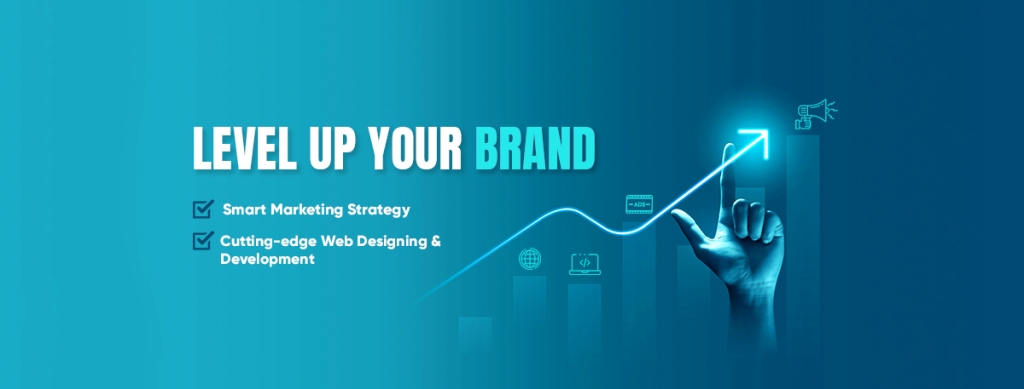How Digital Marketers Navigate the Middle of the Marketing Funnel?
The Consideration stage is the Middle of the Marketing Funnel and has a significant role in potential lead conversions into loyal customers. At every digital marketing agency, the digital marketers follow a set of strategies, tactics and productive practices to maximize conversions in the middle of the marketing funnel.
What Does the Middle Stage of the Marketing Funnel Mean?
At the Consideration Stage, the potential customers have already moved past the initial awareness phase that is from the top of the marketing funnel. At the middle of the funnel, they are considering their options actively. They are doing research, comparing the different products and services, and making an assessment of which is the best one to fulfil their demands.
How Important is the Middle Stage of the Marketing Funnel?
The middle of the marketing funnel has a lot of importance since at this stage the prospects are considering a company’s products and services. Expressing their interest in the business offerings, they are thinking before paying. Hence, it’s a bright chance for nurturing these leads and shift them closer to positive purchasing decisions. By collaborating with a digital marketing agency, convincing the leads becomes an easier uptake.
a. Because the middle of the marketing funnel is where the leads are qualified, so it’s a crucial stage to extract information about their needs and interests. Using this information, digital marketers can determine the possible leads to be surely converted into customers.
b. At the middle of the marketing funnel, the leads are educated. So, digital marketers provide them with valuable content and resources from where the leads can receive useful information to fruition about the business products and services, and how capable are those to solve all problems.
c. The stage to build relationships with leads is the middle stage of the funnel where interacting with the leads on a personal level is possible. This enlarges the chance of buying from the business once they have decided to purchase.
So, nurturing the leads in the middle stage of the funnel helps increase the conversion chances to customers. At the same time, the business grows with the entrepreneur achieving the marketing goals.
How Do the Digital Marketers Understand The Customers?
The key goal of digital marketers at the consideration stage is keeping the target audiences’s attention and pushing them deeper into the purchasing stage of the funnel. When you have signed up with a digital marketing agency, then the digital marketers follow a trick for nurturing these leads and retaining their attention.
First, digital marketers understand the target customers; and psychological aspects for tailoring their marketing strategy.
By Seeking Information
Leads seek active information at this stage to address their needs and solve their problems. Here, psychology is all about the ardent desire to get knowledge and find solutions. Customers will prefer making informed decisions. So, digital marketers bring out proper content to keep the customers informed.
Product and Service Comparison
In all probability, the leads in the middle stage are comparing different options. The psychology that works is assessing the best solution to best align with their particular requirements and priorities by weighing the pros and cons. Digital marketers profess all the positives of the business before the leads.
Building Trust
At this stage, psychology is a significant factor. Leads have to trust the information provided to them along with the source. Naturally, they will look out for reassurance for making the right choice from the expert opinions, testimonials and reviews. Here is where the digital marketers take up to Online Reputation Management (ORM).
Avoiding Risks
Risk aversion psychology is prominent at the Consideration Stage. Leads would never want to make a wrong decision since it means a waste of time, effort and money. They would want to lower all risks of making a choice. So, digital marketers work to bring in social proof by displaying assertive content.
Fears and Doubts
Leads could be in constant doubt and fear regarding making the wrong decision and making a faulty choice. They can address these signs and get reassurance through nurturing. Here, psychology is finding confidence in decisions. That is why digital marketers formulate offers and rewards to appreciate the buyers, after receiving approval from the business.
Personalization Desire
Often, the leads enjoy personalized experiences. Their psychology here is they desire to be treated as individuals having unique needs and preferences. Digital marketers address their desires through personalized emails and messages.
How Do Digital Marketers Convert Leads Into Long-Term Customers in the Middle Stage of the Marketing Funnel?
At every digital marketing agency, digital marketers understand lead conversion into customers is a critical step in the middle stage of the marketing funnel in the customer journey. Hence, they take up the following strategies for doing this effectively:
a. Creating Customer Tailored Content
Digital marketers continue providing contents that directly address the leads’ needs and concerns in the middle of the funnel. So, they offer detailed information and case studies concerning the products or services.
b. Hosting Educational Webinars and Workshops
Digital marketers host webinars or workshops to delve deep into the offerings. They showcase the business products and services in the light of solving certain problems.
c. Starting Personalized Email Campaigns
By sending personalized email sequences addressing the interests of leads as well as their pain points, digital marketers take them into confidence. This is how they are highlighting how the business products and services can benefit the leads.
d. Offering Free Trials or Demos
After an agreement with the business owner, the digital marketers offer product demos, free trials and consultations. Through this hands-on experience, the audiences can demonstrate the value of offerings.
e. Lead Scoring and Segmentation
Digital marketers use lead scoring to identify the most engaged and ready-to-convert leads. They prioritize the efforts on the leads having higher scores.
f. Keeping Social Proof
To build trust and credibility, digital marketers showcase customer reviews, case studies and testimonials highlighting all successful outcomes.
g. Coming Up With A Clear Value Proposition
Digital marketers have on their part to clearly communicate what are the unique values the product or service is offering. They might go to lengths to explain why those products or services are better than any alternatives and how are they addressing specific needs.
h. Offering Discounts and Promotions
As per the business policy, digital marketers offer limited-time discounts or promotions to incentivize middle-funnel leads to help them make a decision.
i. Optimizing Landing Page And Call To Action
For conversion, the digital marketing team ensures the optimisation of the business landing pages and calls to action. It becomes easy for leads to jump to the next step.
j. Simplification of Decision-Making Process
The leads can move forward after the digital marketers have removed obstacles and made it easy for them. They streamline the purchasing process and provide clear guidance.
k. Following-Up
No single touchpoint will ever have a lead converted. That is why, digital marketers implement specific follow-up strategies for continuing the conversation.
Now arriving at the end, it is worth making a note about the Middle Stage of the Marketing Funnel being a dynamic landscape where the marketing strategies are fine-tuned. Likewise, a seamless transition is facilitated from interest to action. At this stage, the leads turn into customers. Both the business and the digital market win when they have produced a careful balance of information, persuasion and personalization to achieve the marketing goals. Hence, by teaming up with a digital marketing agency, the business can gain new customers in the middle of the marketing funnel and build stronger relationships leading to long-term brand loyalty and advocacy.



